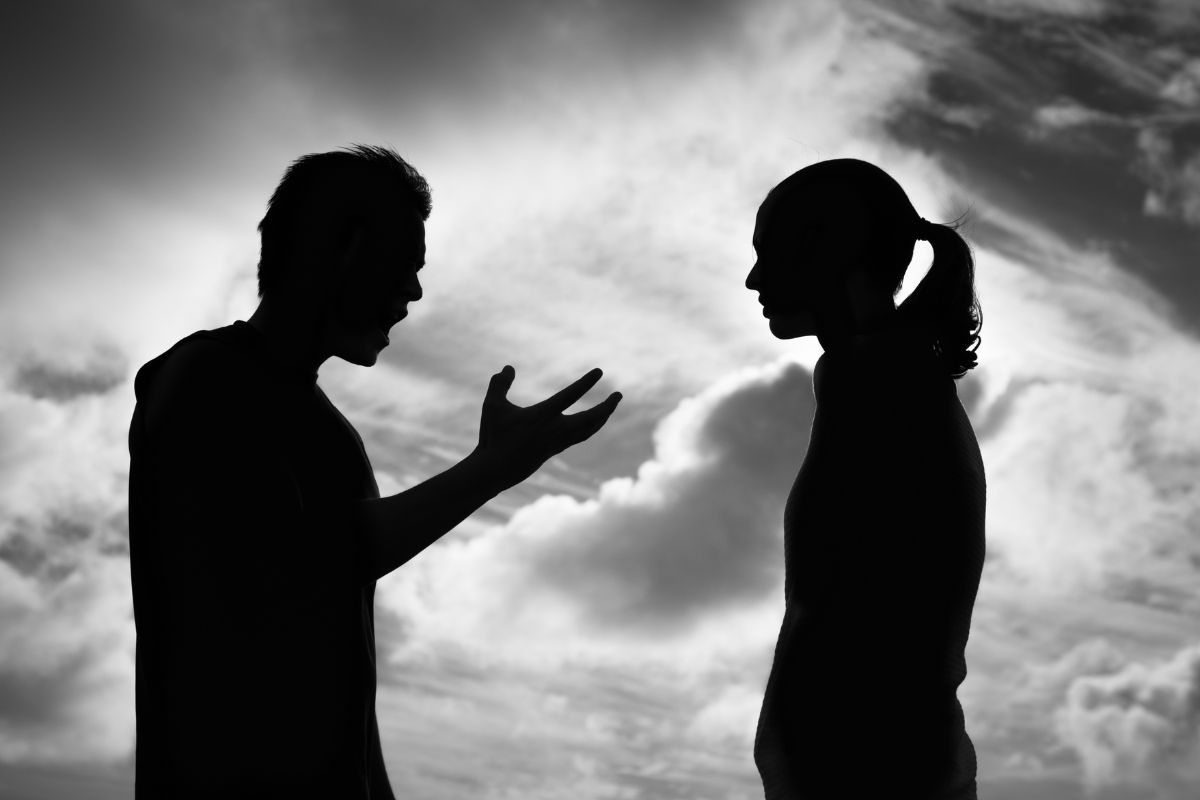Extracted from Relationship Reset by Lissy Abrahams, Published by Macmillan Australia, RRP $34.99
The Carousel is publishing excerpts by psychotherapist and relationships expert Lissy Abrahams from her best-selling book Relationship Reset – How to break the cycle of conflict and create secure and lasting love.
Lissy has spent years exploring the question, “Why do we fight most with those we love the best?” She knows how long-term conflict leaves us drained, anxious and worried for the emotional wellbeing of our families, but Lissy says it’s neither intractable nor inevitable. Conflict is caused by unconscious patterns of thinking and behaviour – unresolved feelings of fear, instability or pain – which can be consciously rewired for a healthier, happier relationship.
We look forward to sharing this excerpt and more in the coming weeks. Here is Lissy’s extract from Relationship Reset:
Why do we perceive our partner as a threat?
Whenever we feel suddenly afraid, shocked or overwhelmed in an interaction with our partner, we will perceive them as a threat, and our amygdalae will kick off the fight or flight response. But why do we do this? For now, the simple answer is that we experience their behaviour, actions, words, opinions, perspective, gestures, mannerisms, tone of voice or volume of voice as frightening or unacceptable to us, and we react as if our life is on the line.
Because we can’t tolerate these feelings, we see our partner as an actual threat, and the physiological reactions that prepare us for survival are activated. We either become physically and emotionally mobilised to take our partner on as an opponent or we take flight.
Fight mode
We can fight our partner with behaviours including blame, bullying, violence, screaming, mocking and many others. We can speak or behave in ways we would never deem acceptable under other circumstances or with other people. These reactions only serve to inflame the situation, heightening our emotional state.
Many of us justify our harsh or over-the-top behaviour in fight mode, claiming our partner ‘made us’ act in a particular way. We often don’t see our behaviour as out of line, nor do we take respon- sibility for it.
For example:
- Leo’s partner calls him names like ‘man-boy’ and ‘weakling’. Leo approaches him suddenly and points his finger, saying ‘Go on. Say that now!’
- Clare’s partner slams the bedroom door loudly during a fight, which startles Clare. She screams, ‘Stop slamming the door!’ and walks in a confronting manner towards her partner.
- Akiko’s partner lowers his voice when upset. She can’t stand him doing this, and responds snappily to him, ‘Speak up for god’s sake. I can’t hear you!’
Flight mode
We can take flight by avoiding our partner. We may escape to another room, or even stay at a hotel overnight. Flight also shows itself when we become withdrawn in our partner’s presence or avoid them by staying late at work. We may also use flight to avoid our feelings, resorting to self-destructive behaviours like excessive drinking, gambling, binge eating or self-harm. Flight can also be seen when we become passive or compliant in order to move away from our distress or soften the atmosphere with our partner. For example:
- Julia organises a late afternoon meeting to keep her distance from her partner following a text message from him that hurt her feelings.
- Bella drinks three quick glasses of wine when her partner says sternly that she never puts the kids to bed on time.
- Ravi’s partner rolls her eyes at him. He feels disrespected and ashamed and tries to get away from her.
Many of us can react in fight mode just like Clare, Akiko and Leo, or we use flight strategies like Ravi, Julia and Bella. Whenever feelings of fear, distress or shame are evoked that we don’t know how to manage, we react with fight or flight.
We do this because we haven’t learnt how to deal with or process these difficult feelings in a healthy way. We have no access to what triggered our amygdalae and usually believe we feel fearful, sad, upset or anxious because our partner’s words or behaviour set us off. It makes sense in our own mind that they’re responsible, and we construct narratives that make sense to us too. If they hadn’t said this, or done that, or told someone, or believed something, then we wouldn’t feel this way.
Fight or flight reactions will keep us trapped in fearful or distressing conflict. They will always add fuel to the fire, and ultimately take us further away from resolving our couple conflict. Eventually, they’ll harm our relationship. The real problem is that we never learn that the difficulty resides in us – that we haven’t learned to manage these feelings. We have distress intolerance.

Couple: Michelle and Joseph
Let’s have a look at how the fight/flight strategies play out between Michelle and Joseph.
Michelle was raised by her mum; her dad was never on the scene. Being a single mum was tough, and Michelle’s mum drank ‘to cope’. Her drinking was out of control when Michelle was young, and she’d frequently become angry. Michelle sought refuge in science fiction novels; there was nobody else at home to protect her from her mother’s unpredictable and hurtful outbursts.
Joseph’s parents emigrated from Ireland to Australia about five years before he was born. His father was very hard working and often had to travel to see clients. He showed his care and love for Joseph practically, but he wasn’t emotionally available. His mother was inconsistent in her ability to be emotionally present, and she quickly became overwhelmed when her husband was away. Joseph recalls she could be anxious and even tearful. He felt somehow responsible for making her feel that way, like he was too much for her, or a burden.
When they first met, Michelle really liked that Joseph’s parents were still together. This fulfilled her childhood dream of a united extended family. Kids were always in their couple plan, and they fell pregnant within a few months of getting together. They both saw this as a big and exciting surprise. After their daughter Francesca arrived, Joseph noticed that Michelle’s behaviour changed. She would become upset whenever he drank alcohol.
Now that they were parents, Michelle believed Joseph’s drinking should have stopped, or at least reduced. Joseph felt Michelle was trying to control him; he’d always thought it was normal to have a few drinks. Michelle tried to speak with Joseph about his drinking, but he was always defensive (fight strategy), saying things like ‘Stop looking at me as if I’m your mother’ or, ‘I know you watch me, but it’s creepy!’ or, ‘I’m a good dad. You know how hard I work to provide Frankie a good life!’
Michelle often told him he stank of beer, but when she wanted to hurt him the most, she’d pointedly say, ‘What kind of father are you?’ To which he’d reply that he’s just like everyone else, rattling off the names of all his mates who do exactly the same thing. ‘We have stressful jobs and need to unwind’ he’d argue, or angrily say, ‘Just let me relax!’ (flight strategy). Joseph started to raise his voice a lot more, and gestured largely with his arms (fight). Sometimes this frightened Michelle. She found that Joseph could be mean and judgemental (fight).
Alcohol was always an issue between them – it was the giant elephant in the room. On the way to restaurants or dinner with friends, she’d often make a comment like ‘Go easy tonight.’ This would set Joseph off (fight), and she’d typically reply sternly, ‘You need to look at yourself!’ (fight). The occasion was frequently ruined for her as she’d become anxious, wondering just how much Joseph would drink.
Once they had a massive argument in the middle of a restaurant, in front of their friends (fight). Joseph was verbally aggressive towards her, in public, which terrified Michelle, but she was also secretly pleased that her friends saw what Joseph was like.
Now in their late thirties with an eight-year-old daughter and busy careers, their arguments are more frequent (fight, fight, fight). They haven’t had sex for two years.
To read more, check out Relationship Reset by Lissy Abrahams by clicking here.


About Lissy Abrahams
Lissy Abrahams is a leading psychotherapist who has dedicated her career to helping hundreds of clients navigate life’s obstacles and challenges. Lissy studied psychology in Sydney and then completed her Masters of Couple Psychoanalytic Psychotherapy at the internationally renowned Tavistock Relationships, London.
Lissy founded and manages the Sydney-based therapy clinic, Heath Group Practice, and works therapeutically with clients around the world. She has launched a successful online course to help partners stop fighting, communicate respectfully and rekindle love.
















